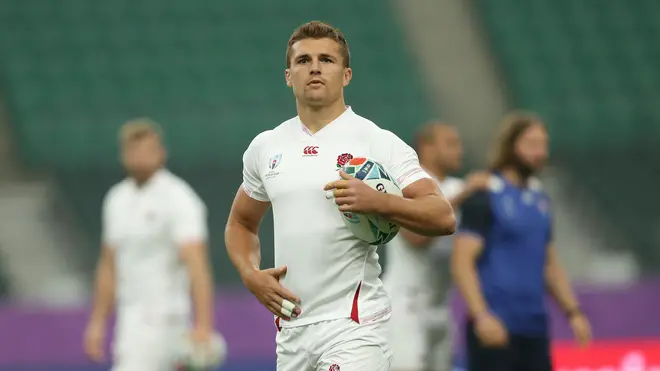
Tom Swarbrick 4pm - 6pm
28 May 2021, 09:50 | Updated: 28 May 2021, 09:56

England rugby star Henry Slade has insisted he will not take a coronavirus vaccine.
The Exeter player, who has diabetes and is considered clinically vulnerable to Covid-19, said he views himself as fit and healthy so would not receive a jab.
"I am not going to have a vaccine. I don't agree with it at all," he told the Daily Telegraph.
"I don't think you can trust it, can you? I don't think it has been going long (the vaccinations). There is no way of knowing what could happen with it in the future."
The paper said the purpose of the interview was not to discuss vaccination, but it has made him the first major British sportsperson to speak out against jabs.
Slade, 28, told the Telegraph he is tested regularly, which helps protect him, and he has had bad experiences with vaccines in the past.
Read more: German scientists "solve" Covid vaccine blood clot side effect
Read more: UK passes 60 million jab milestone after ‘huge day’ for Covid vaccinations

JCVI member confirms vaccines highly effective against variants
Vaccines approved for use in the UK are considered overwhelmingly safe and new data suggests they stopped 40,000 hospital admissions.
They are seen as the only way out of the pandemic, allowing populations to build up immunity to Covid-19's effects and allow life to return back to normal.
The UK's fast moving coronavirus vaccination campaign has been bolstered by a high uptake among the British population.
According to the Office for National Statistics (ONS), 93% of adults have positive sentiment towards vaccines, while 7% are hesitant.
Slade is in the age demographic most likely to report hesitancy – 13% of people aged 16 to 29 did so.
The ONS said concerns about long-term effects on health, possible side effects and efficiency were the top three reasons a person would report negative feelings about vaccines.
The UK Government continues to urge people to get vaccinated when invited to do so – especially because of the protection it offers against the fast-spreading Indian variant of coronavirus.
People as young as 30 are now able to book an appointment in England, while Northern Ireland has opened it up to all adults.
More than 38 million people have had their first dose while 24 million second doses have been given out.